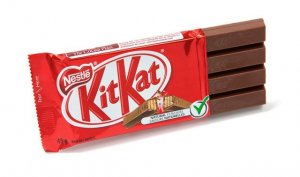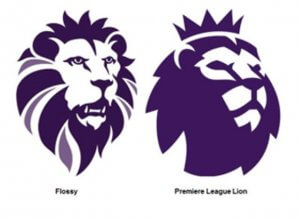- Intellectual property
- Manufacturing

Longer Reads
Manufacturing, printing technology and intellectual property rights
Partner Patrick Wheeler and Trainee Solicitor Zoë Deckker discuss manufacturing, printing technology and intellectual property rights
1 minute read
Published 24 June 2023
Key information
Can a manufacturer use technical functionality to ensure that end users can only employ those accessories or consumables that it has manufactured or approved, or can that be challenged in law? This question has been debated for over 35 years since litigation concerning copyright in spare parts for cars in the 1980s led to the passing of the Copyright Designs and Patents Act 1988.
Manufacturers and IP rights
HP recently garnered attention by remotely updating its printers to block rival ink cartridges, citing “dynamic security” to safeguard their innovations, intellectual property, and customer experience while protecting against counterfeit products. This has reignited discussions on balancing IP rights and preventing anti-competitive practices. The UK Competitions and Markets Authority emphasizes the need for manufacturers to be transparent about printer restrictions and avoid misleading claims about incompatibility.
Ink cartridges can be protected through patents or designs, each offering different levels of legal safeguards. Patents cover ‘inventions’ – something newly manufactured, inventive and either something that can be made and used, a technical process or a method of doing something. Applying to register a patent is a far more rigorous and lengthy process than obtaining registered or unregistered design protection. Protection of designs under English law is complex, and can potentially involve registered designs, unregistered designs and/or copyright. Registered designs help protect the appearance of the product – the external shape and appearance of the cartridge. They are relatively cheap and quick to apply for. Unregistered designs and copyright arise automatically provided certain criteria are met.
How competition law applies in manufacturing
The intersection of competition law and IP rights creates tension, as IP rights grant monopolies while competition law seeks to promote fair competition. Whether the tying of the sale of the printer to the sale of “original” ink cartridges amounts to abuse of a dominant position has been the subject of much discussion. They are not considered to belong in the same market – the printer exists in the primary market, whereas cartridges exist in the aftermarket – which has been the subject of litigation.
HP’s desire to protect its IP and maintain product quality and efficiency is understandable, but competition authorities are vigilant about measures that limit consumer choices or increase costs. It remains to be seen if HP will face challenges under competition law, making customer clarity a crucial consideration moving forward.
This article was first published on Manufacturing Magazine in June 2023.
For more information, visit our Intellectual Property Lawyers page.
Related content
Longer Reads
Manufacturing, printing technology and intellectual property rights
Partner Patrick Wheeler and Trainee Solicitor Zoë Deckker discuss manufacturing, printing technology and intellectual property rights
Published 24 June 2023
Associated sectors / services
Authors
Can a manufacturer use technical functionality to ensure that end users can only employ those accessories or consumables that it has manufactured or approved, or can that be challenged in law? This question has been debated for over 35 years since litigation concerning copyright in spare parts for cars in the 1980s led to the passing of the Copyright Designs and Patents Act 1988.
Manufacturers and IP rights
HP recently garnered attention by remotely updating its printers to block rival ink cartridges, citing “dynamic security” to safeguard their innovations, intellectual property, and customer experience while protecting against counterfeit products. This has reignited discussions on balancing IP rights and preventing anti-competitive practices. The UK Competitions and Markets Authority emphasizes the need for manufacturers to be transparent about printer restrictions and avoid misleading claims about incompatibility.
Ink cartridges can be protected through patents or designs, each offering different levels of legal safeguards. Patents cover ‘inventions’ – something newly manufactured, inventive and either something that can be made and used, a technical process or a method of doing something. Applying to register a patent is a far more rigorous and lengthy process than obtaining registered or unregistered design protection. Protection of designs under English law is complex, and can potentially involve registered designs, unregistered designs and/or copyright. Registered designs help protect the appearance of the product – the external shape and appearance of the cartridge. They are relatively cheap and quick to apply for. Unregistered designs and copyright arise automatically provided certain criteria are met.
How competition law applies in manufacturing
The intersection of competition law and IP rights creates tension, as IP rights grant monopolies while competition law seeks to promote fair competition. Whether the tying of the sale of the printer to the sale of “original” ink cartridges amounts to abuse of a dominant position has been the subject of much discussion. They are not considered to belong in the same market – the printer exists in the primary market, whereas cartridges exist in the aftermarket – which has been the subject of litigation.
HP’s desire to protect its IP and maintain product quality and efficiency is understandable, but competition authorities are vigilant about measures that limit consumer choices or increase costs. It remains to be seen if HP will face challenges under competition law, making customer clarity a crucial consideration moving forward.
This article was first published on Manufacturing Magazine in June 2023.
For more information, visit our Intellectual Property Lawyers page.
Associated sectors / services
- Intellectual property
- Manufacturing
Authors
Need some more information? Make an enquiry below.
Subscribe
Please add your details and your areas of interest below
Article contributor
Patrick
WheelerPartner - Head of IP & Data Protection
Specialising in Intellectual property disputes, Data protection, Digital, Intellectual property and Manufacturing
Enjoy reading our articles? why not subscribe to notifications so you’ll never miss one?
Subscribe to our articlesMessage us on WhatsApp (calling not available)
Please note that Collyer Bristow provides this service during office hours for general information and enquiries only and that no legal or other professional advice will be provided over the WhatsApp platform. Please also note that if you choose to use this platform your personal data is likely to be processed outside the UK and EEA, including in the US. Appropriate legal or other professional opinion should be taken before taking or omitting to take any action in respect of any specific problem. Collyer Bristow LLP accepts no liability for any loss or damage which may arise from reliance on information provided. All information will be deleted immediately upon completion of a conversation.
Close





































